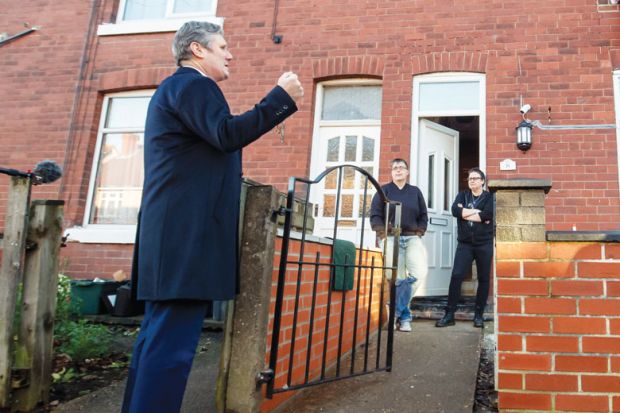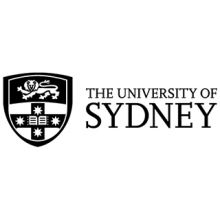“Both politicians and academics are labouring with the same problem, which is this disconnect from everyday, ordinary society and community.” That’s the argument made by Marc Stears, whose time as senior adviser and chief speechwriter to former UK Labour leader Ed Miliband ended with the party’s 2015 election defeat.
Since then, he has travelled quite a distance, literally and figuratively. In 2018, he became the first director of the Sydney Policy Lab, a “multidisciplinary research initiative” at the University of Sydney.
Professor Stears’ latest book, Out of the Ordinary: How Everyday Life Inspired a Nation and How It Can Again, was published earlier this year, ahead of the current phase of Labour’s existential crisis, triggered by defeat to the Conservatives in the Hartlepool by-election this month. The book looks at a group of British writers, artists and filmmakers at work between the 1920s and 1950s – including J. B. Priestley, George Orwell, Barbara Jones and Dylan Thomas – whose emphasis on politics manifested in everyday life counteracted the extreme ideologies of their era and, Professor Stears argues, is needed in our own era of polarisation.
THE Campus resource: Promoting community and inclusiveness to diverse students
Speaking to Times Higher Education, the former professor of political theory at the University of Oxford extrapolated the book’s political analysis to university life.
Out of the Ordinary was partly shaped by his experience in party politics. He found that working for Labour and accompanying Mr Miliband around the country was “on the one hand…an inspiring process” involving “wild conversations with people from every walk of life”.
But “the downside was that…the mechanisms of contemporary party politics were just totally ill-suited to being able to draw on any of the ideas, the wisdom, the enthusiasm that we picked up on the doorstep or on the streets”, said Professor Stears, associated with the “Blue Labour” strand of thinking.
In the book, he recalls seeing data from Labour pollsters showing that the public’s top priority by a mile “was the wish to be able to have rewarding time with close friends and family”. Could Labour do anything with this in its policymaking or campaigning? The reply he received was that “it is just not the kind of thing that politics is about”.
Asked about the shift in Labour’s support towards graduate voters and away from non-graduates, Professor Stears talked about a “cultural lock on the party with a particular group of society” in its staff and supporters, which “makes it very difficult to talk to anybody else”. This was highlighted when Mr Miliband gave a speech on the minimum wage in Bristol, but “we didn’t have any minimum wage workers in the local party who could come along to talk about what life was like on the minimum wage”, he said.
Professor Stears drew parallels with the university-community disconnect he is trying to counteract at the Sydney Policy Lab, the brainchild of Duncan Ivison, Sydney’s deputy vice-chancellor for research. What drove its creation was a realisation that “people whose taxes pay the bills” were “growing tired” of an “elite institution on top of a hill in Sydney with very few deep connections into the city around us or into the state”, said Professor Stears.
The lab was set up “to experiment with different ways of bringing academics into partnership with grassroots community change agents, local politicians, journalists, campaigners, to see whether we could start to do university life differently, so we didn’t suffer the same fate that some of the big political parties have”, he continued.
That has involved teaching hundreds of academics across the university how to do “genuinely collaborative research” with non-university groups “in order to create new knowledge and real social change”; training them in community organising, “how to listen to people” and “build trust with people from different backgrounds to yourself”; and taking them out to “homeless shelters and to work with people who are doing drug rehabilitation programmes”.
Professor Stears described the experience as “mesmerising”, adding: “What’s been great…is people saying, ‘It’s the first time in my lifetime the university has ever knocked on my door or asked to do stuff with us.’”
Academic cloistering is an eternal lament, but Professor Stears saw something new in how the “globalisation of academic publishing”, the “global labour market for academics” and the globalised conference circuit have contributed to the “division of the university from its immediate surrounding community”.
“Just as in economics and politics there’s been a reaction against that, so in academia,” he said.
In a parallel, the way forward for Labour, Professor Stears argued, will require “much more attention to local and community-based solutions to problems” as “the potential building blocks to repairing your relationship with the people you claim to represent”.
Pointing to Labour’s founding roots in cooperative and friendly societies, in local trade unions, he added: “That’s how the bloody party was built to start with.”
Register to continue
Why register?
- Registration is free and only takes a moment
- Once registered, you can read 3 articles a month
- Sign up for our newsletter
Subscribe
Or subscribe for unlimited access to:
- Unlimited access to news, views, insights & reviews
- Digital editions
- Digital access to THE’s university and college rankings analysis
Already registered or a current subscriber? Login











